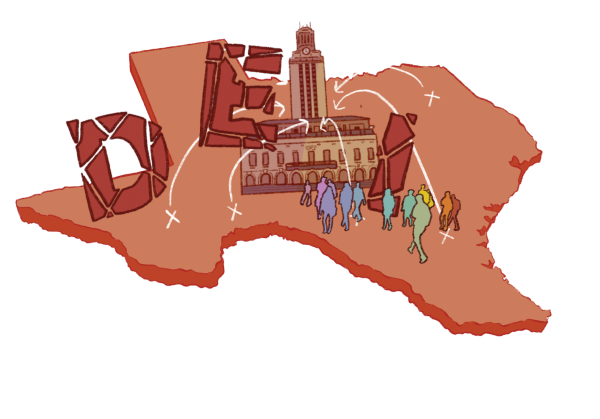Texas Senate Pushes for Anti-Trans Bill
May 28, 2021
On April 16, 2021, Texas House Bill 1399 was advanced to the House, which is just one of over 115 similar bills being circulated throughout the nation. The bill, which targets trans youth, prohibits health care providers and physicians from performing gender-affirming surgery, and prescribing puberty blockers and hormone treatment to minors. In addition to this bill, Texas lawmakers have also introduced other bills, like Senate Bill 1311, that would revoke a medical professional’s licensing if they perform or prescribe any gender-affirming treatment. Penalties vary for people who offend these laws but include 2-10 years in prison as well as trans children being put into foster care. Jaime Zapata, a board member at the Transgender Education Network of Texas, said she wouldn’t be where she is today if she wasn’t allowed to receive hormones or other medicines.
“I transitioned as a teenager back in the ’80s, and for me personally, if I wasn’t allowed to transition or if my parents weren’t able to take me to get hormones and those kinds of things, I would’ve run away,” Zapata said. “Luckily, that didn’t happen, and I had the support of my family and friends and doctors, and I was given the treatment I needed.”
The largest survey of transgender youth, including non-binary youth, from the Trevor Project in 2020 shows that more than half have considered suicide, but it also shows that gender-affirming medical care can decrease both depression and suicidal thoughts among trans kids. Rachel Hill, a member of Equality Texas, said she believes that this care can be extremely helpful to transitioning children.
“We have seen terrible reports coming from Arkansas, where the healthcare ban has already passed, about kids who have already attempted suicide directly because of this bill,” Hill said. “[Trans care] decreases suicidal ideology in the population, which is already high.”
Hill said that she believes the misconceptions about what trans care includes are one of the main reasons these bills are moving forward. She said that misinformation from the bills is causing people to develop incorrect beliefs.
“It’s something that folks don’t know a lot about, transition care,” Hill said. “The puberty blockers and the suppression and all of the healthcare that trans youth receive, because people don’t know about it, it’s an easy issue to get riled up on.”
On Sept. 27, 2019, a news post on a Catholic news website that stated that trans health care was linked to “thousands of deaths” went viral. This post has since been debunked, and studies show that when youth receive the medication, the odds of suicide decrease by 70%.
“Puberty blockers, in particular, act as a pause button, and we hear a lot from folks about how this is irreversible treatment, it’s not,” Hill said. “So if somebody decides to change their mind halfway through, they can just stop taking the puberty blockers, and puberty just continues as it normally would.”
Sam Clubb is a group staff therapist at Outyouth, a local organization for the LGBTQ community that offers a safe space for people of different gender orientations to express themselves. They said that puberty blockers are also especially important to trans youth because they can help transgender kids feel good in thier own skin.
“Puberty blockers in minors with doctor and parental guidance are a good thing,” Clubb said. “It helps combat dysphoria, and it corrects an imbalance that is being perceived by the brain.”
According to the Child Mind Institute, gender dysphoria is a significant problem in trans youth and can prevent transgender kids from recieving the help they need. Clubb said they believe that in addition to the gender dysphoria many trans kids already experience, these bills will make the struggle of dysphoria worse.
“Basically, someone feels like they’re not in the correct body, or certain aspects of their physical being do not match up with how they identify personally,” Clubb said. “This can be any physical body part, a lot of times there’s also voice dysphoria about how someone’s voice sounds, and these bills, in particular, will make it a lot harder for youth to combat dysphoria.”
According to the Mayo Clinic, most children categorize their own gender by the age of three and are able to tell different gender groups apart by 18-24 months. Zapata said that taking children’s gender identity seriously is very important.
“We all know who we are at a young age, and no matter what people try to instill in us, our feelings of who we are are there,” Zapata said. “When a child tells us who they are, we should listen to them and not try to stop them from being who they are.”
A survey from the U.S.-based National Center for Transgender Equality showed that, of the 28,000 people that responded to the survey, only 8% reported detransition. The survey also showed that 62% of that 8% only detransitioned temporarily, and the most common reason for detransitioning was pressure from a parent.
“They have false statistics saying that transgender kids detransition, but most of that detransition is from public pressure,” Hill said. “Pressure from families, pressure from their schools, and they keep talking about things that just don’t happen.”
According to the Human Rights Campaign, more than 115 bills have been introduced that target the transgender community. Research from The 519 shows that transgender youth, including nonbinary youth, face more discrimination than any other youth group.
“It’s been a very, very frustrating time in particular for my organization as well as the youth that I serve. It’s been a very scary time,” Clubb said. “We just hope people listen to evidence, and they do their research, and they don’t try to solve problems that aren’t problems to begin with.”









